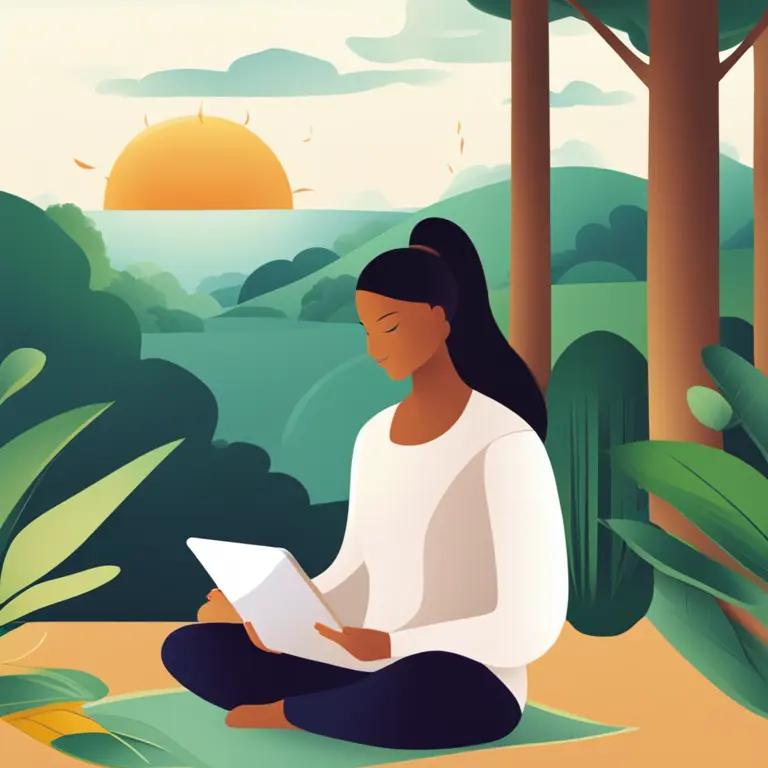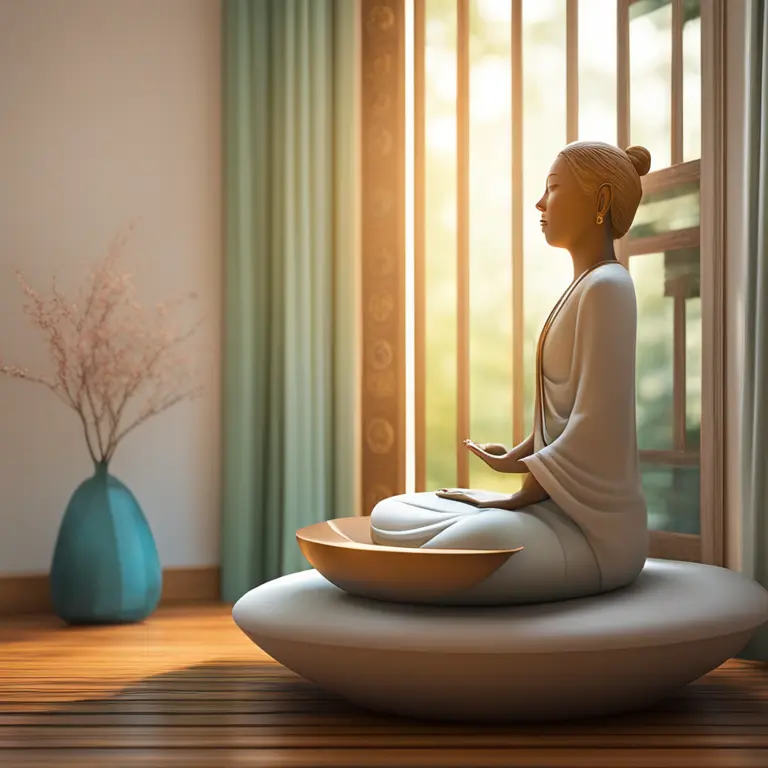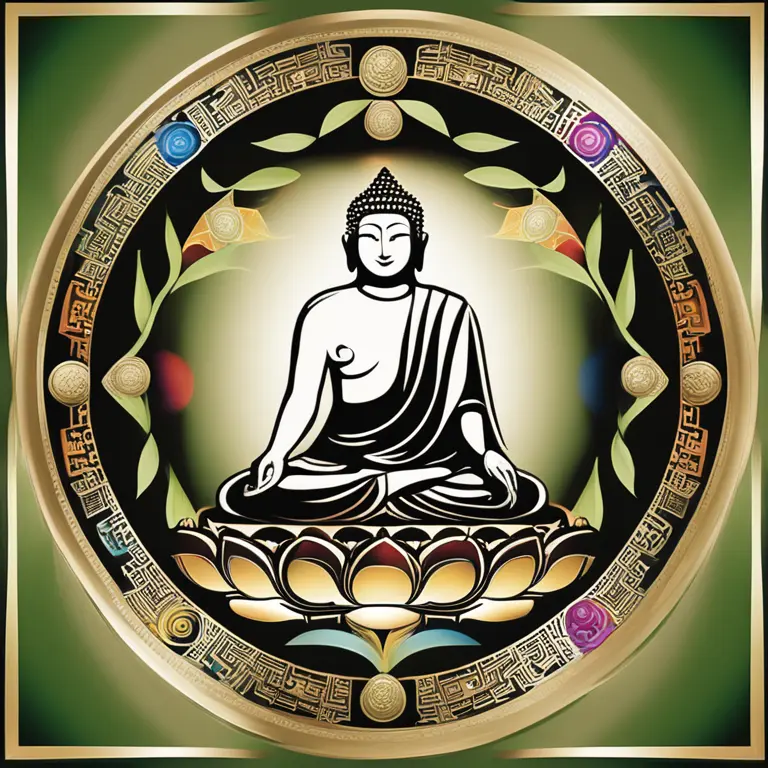
Clarity in Stillness: Defining Meditation and Mindfulness
Delve into the essence of meditation and mindfulness, their distinct definitions, and how they foster a serene state of being in our hectic modern world.
article by Hina Kurosawa
The Essence of Meditation
Meditation is a practice with ancient origins tied to various cultures and traditions. It is the deliberate process of turning one's attention inwards, aiming to quiet the mind and achieve a state of deep peace and relaxation. Regular meditation has been linked to numerous health benefits, including reduced stress, improved concentration, and increased emotional wellbeing. Contrary to some misconceptions, meditation is not about becoming a different person, nor is it about turning off your thoughts. Rather, it is about observing them without judgment and gaining awareness of your mental patterns. As we progress through 2024, the integration of meditation into daily routines continues to grow, reflecting an increased understanding of its value in managing the complexities of modern life.

Defining Mindfulness
Mindfulness, often used interchangeably with meditation, is actually a distinct aspect of the meditative experience. It refers to the practice of maintaining a nonjudgmental state of complete awareness of one's thoughts, emotions, and experiences on a moment-to-moment basis. Essentially, it involves being fully present and engaged in the now, without distraction or judgment. This simple yet profound act of paying attention has gained recognition for its role in reducing the impact of stress on the body and mind. Mindfulness is not only practiced during dedicated sessions but can also be infused into everyday activities, offering a flexible and accessible approach to cultivating a calm and focused demeanor.

The Convergence of Meditation and Mindfulness
While meditation is primarily a seated practice dedicated to quiet contemplation or chanting, mindfulness can be seen as its active counterpart, practiced while engaged in any activity. The two, while separate concepts, complement each other and often overlap. For instance, one can meditate with the intention of enhancing mindfulness, and one can practice mindfulness to prepare for deeper meditation. As science continues to explore these practices, their convergence is increasingly being recognized as a powerful duo for promoting resilience, adaptability, and emotional intelligence amidst the complexities of the 21st century.

Benefits in Our Technological Era
The age of technology presents unique challenges with constant connectivity and information overload. Meditation and mindfulness offer a sanctuary from the digital storm by fostering digital wellbeing and encouraging individuals to periodically disengage from devices. These practices aid in regulating attention, countering the effects of continuous partial attention, and enhancing one's capacity to focus deeply. They serve as tools for digital age citizens to protect their mental health from the barrage of stimuli that characterize this era of smartphones, wearables, and pervasive screens.

Meditation and Mindfulness in Everyday Life
Integrating meditation and mindfulness into daily routines doesn't necessitate dramatic lifestyle changes. It can be as simple as practicing mindful breathing for a few minutes each day, engaging in mindful walking, or taking brief 'mindful moments' to savor a meal without distractions. As these practices become more mainstream, apps, and online platforms provide guided sessions to assist users in cultivating these habits. The workplace is also seeing a shift, with companies incorporating mindfulness programs, recognizing their potential to reduce burnout and improve employee performance and job satisfaction.
Looking Ahead
The ongoing study and practice of meditation and mindfulness promise further innovations in the way we understand and use them. Research continues to explore their impact on neuroplasticity and mental health, possibly leading to newer methodologies that blend traditional practices with contemporary scientific insights. The conversation around these practices is evolving, and their applications in education, healthcare, and personal development are bound to expand. Embracing meditation and mindfulness is not merely a trend but a foundational practice for anyone seeking balance and clarity in a fast-paced and often chaotic world.
Published: 1/18/2024
Modified: 1/18/2024
More predictions
Come back here soon to learn more about yourself and your future


Can Meditation Impact On Depression?
Meditation can be a powerful tool for mental health. Discover whether incorporating a meditation practice can alleviate depressive symptoms.


Best Meditation Techniques for Brain Health
Discover effective meditation practices to enhance cognitive functions and maintain a healthy brain.


The Origins of Meditation: Tracing Its Historical Roots
Discover the historical origins of meditation, its transformation through time, and its profound impact on various cultures around the world in this insightful article.